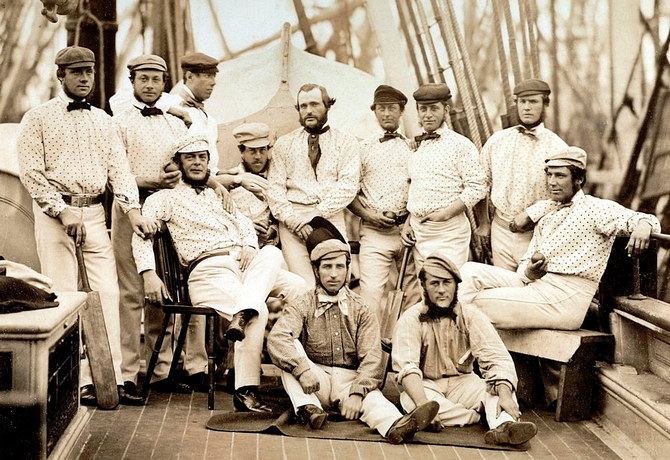LONDON: At its 78th annual general meeting, held virtually this year in mid-July, the International Cricket Council (ICC) welcomed three new associate members. Two of them — Mongolia and Tajikistan — joined for the first time, whilst Switzerland was readmitted after losing its membership in 2012.
This means that, in addition to the twelve full ICC members, there are now 94 associate members, Zambia having been expelled in 2019 and Russia suspended in 2021 for non-compliance with certain membership criteria.
It is a common assumption that cricket’s initial geographical spread was a function of the British Empire. The sailors and soldiers, traders, missionaries, convicts, settlers, administrators all contributed to it being played in North America, India, Australia, New Zealand, the Caribbean and parts of Africa, especially the south and east.
According to USA Cricket, which has run the game since 2018 after the expulsion of the United States of America Cricket Association in 2017, the first reference to cricket being played there was in 1709. The first international match was played between the US and Canada in September 1844. By the mid 1800’s, cricket was played in 22 states by up to a thousand clubs; during the Civil War, baseball, a shorter game, became more popular with troops and has since dominated.
The first reference to play in India is reported to have been between sailors of the East India Company in 1721. No doubt, cricket was played within the colonial enclaves of India but it was not until the mid-19th century that reports of organized matches began to appear. If the development of cricket in England was rural, it was, by contrast, urban in India, being driven initially by Parsis in Bombay, who sought to epitomize British values in their everyday lifestyles.
Around the same time, international tours became frequent commercial ventures played by professionals. Thus, an English party toured the US and Canada in 1859 and another toured Australia in 1861-62. In 1868, an Australian Aboriginal side toured England and, in 1877, England played its first Test match against Australia to begin the game’s oldest rivalry.
The domination of these tours by professionals began to wane, as the English cricket establishment became increasingly influenced by upper class products of public schools. One leading light was Lord Harris, who, as governor of Bombay, promoted cricket as a unifying force that generated team spirit, character, but was above all an amateur pursuit.
Lord Hawke was of similar mind. He led parties of amateurs to India, South Africa, the West Indies, Australia and New Zealand between 1892 and 1903. These tours were the stuff of soft diplomacy, the game seeking to expand its influence wherever English was spoken, promoting particular moral codes and supporting “imperial” purpose.
This divergence between amateur and professional approaches to the game had repercussions until well in to the second half of the 20th century. The model of cricket promoted by the likes of Harris and Hawke, in which the cultivation of a superior style, played in an elegant and graceful manner under pressure, served to exclude many from playing the game.
On top of that, cricket was accused of being used as an instrument to maintain hegemonic order; an agent of control and reaffirmation. In the West Indies, it took until 1948 for a black man to be appointed captain, but only for one match. In South Africa, a Test-playing nation since 1889, it took until 2006 for a non-white man to be appointed captain. In India, the game was arranged around religious and communal lines until after independence.
The control of the game by white, mainly English, men has been loosened gradually over the last 50 years. A symbol of that control was embodied in the Imperial Cricket Conference, formed in 1909 to administrate the game, primarily from an English perspective, with England, South Africa and Australia being founder members. In 1965, “Imperial” became “International”; in 1989 “Council” replaced “Conference,” and in 2005, the ICC headquarters moved from London to Dubai.
It is reasonable to argue that this move has provided the impetus for the ICC to be much more international in its perspective, encouraging a larger number of national cricket governing bodies to promote cricket at a wider level of youth, and through women’s cricket. The game is now the second most popular sport in the world, thanks in large part to India, along with Pakistan and Bangladesh, with a combined population approaching 1.5 billion.
Yet, cricket is absent from the Olympics, having made its one and only appearance at the 1900 Games, when England defeated France. There are hopes that it may feature in 2028 in Los Angeles, and the ICC has formed a committee to explore it.
A key issue is which format is most suitable, with T20 and T10 believed to be under discussion. The latter was introduced in the UAE in 2017, followed by Qatar, Malaysia, Fiji and over 10 European countries. Another issue is what its impact might be on revenue streams that currently feed directly into cricket. If these issues can be overcome, cricket at the Olympics would be a major boost to the expansion of cricket’s global and increasingly inclusive appeal, long removed from its previous narrow, imperial, expansionist phase.




















